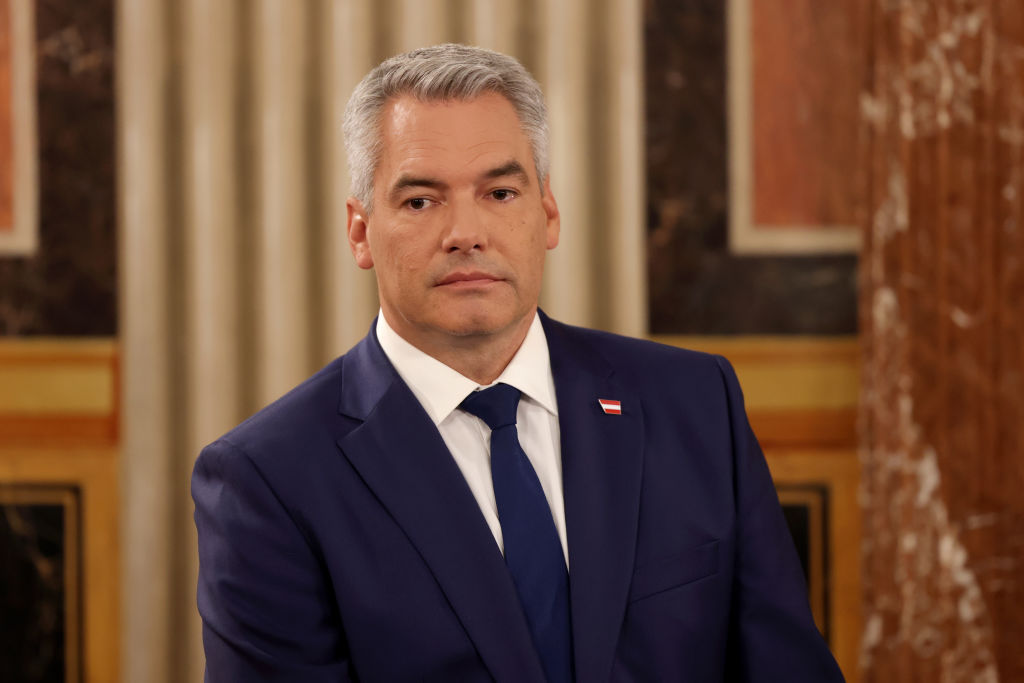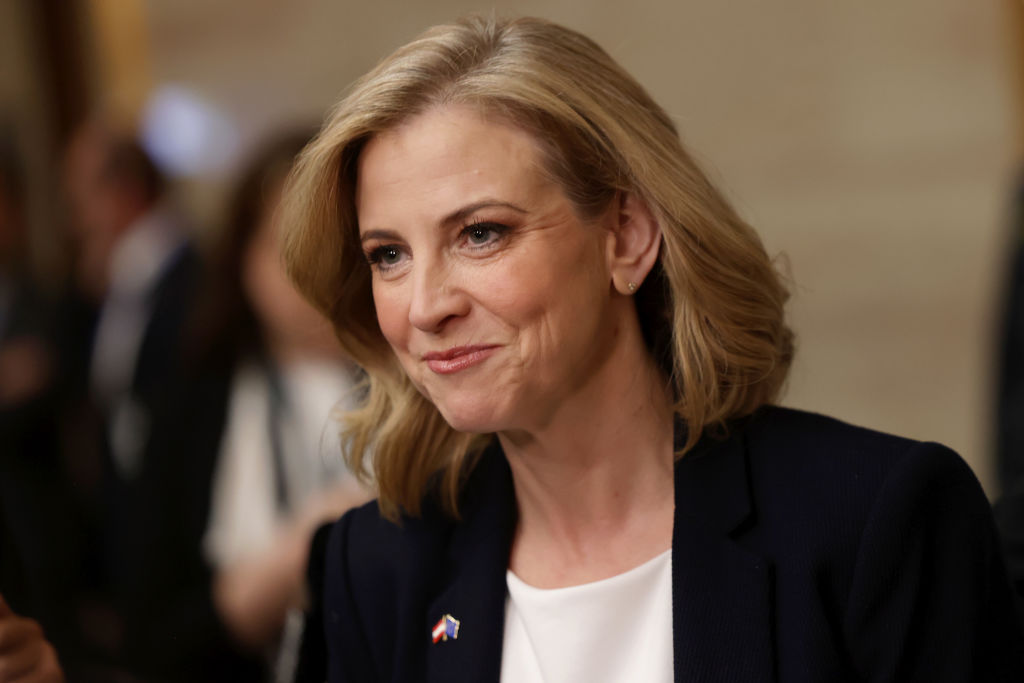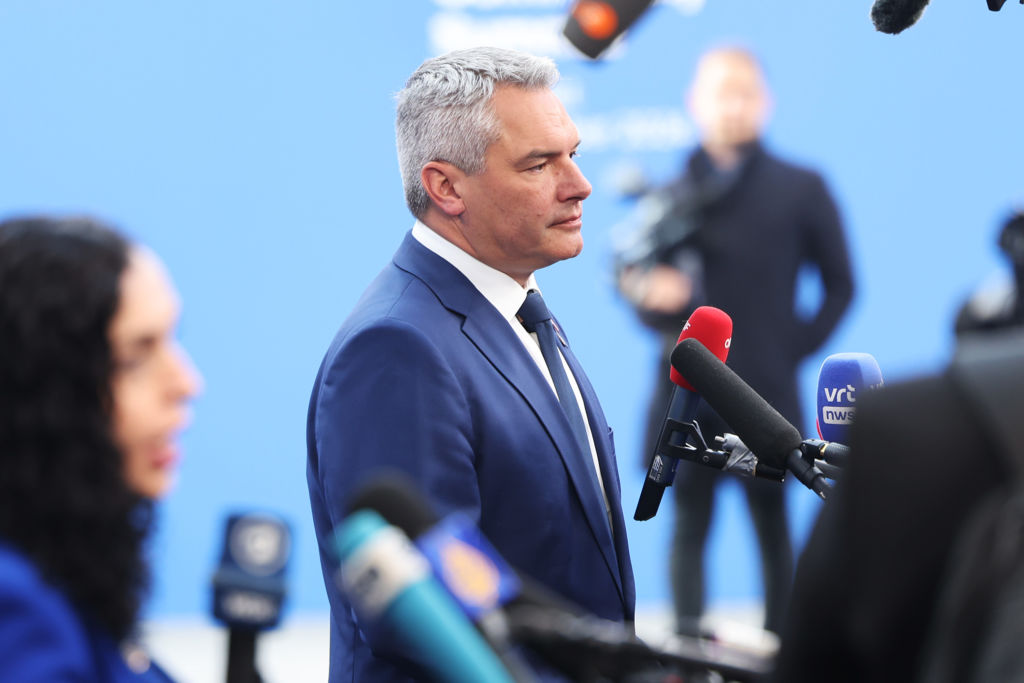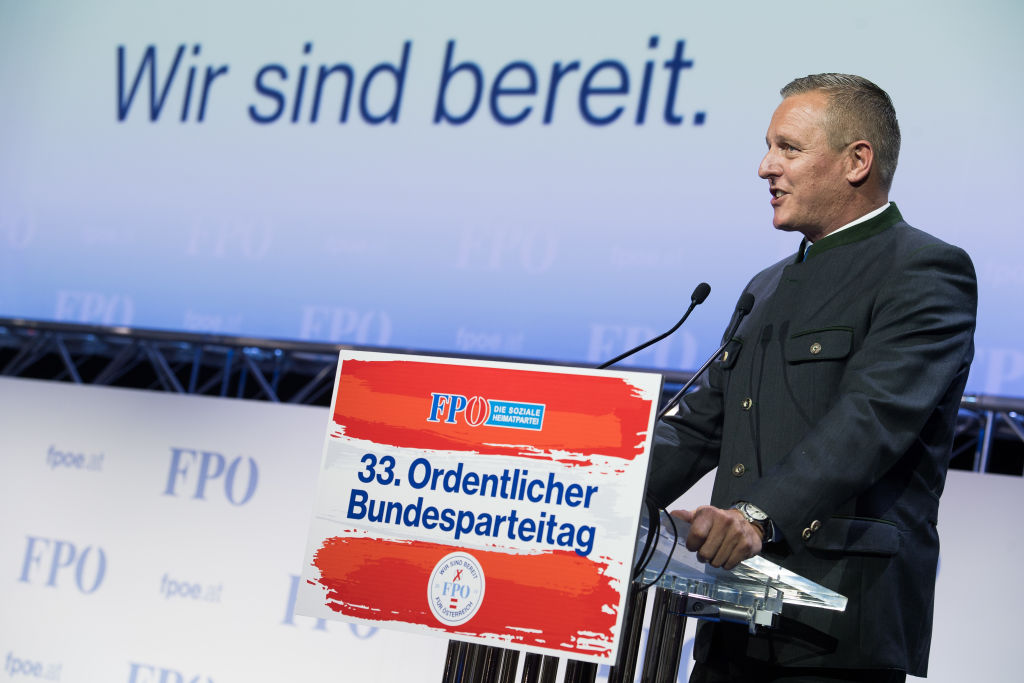In Vienna, Austria, talks between the right-wing Freedom Party (FPÖ) and the Conservative People’s Party (ÖVP) on forming a government coalition have officially started.
The main point of discussion on January 10 was set to be the country’s federal budget crisis.
On January 9, ahead of the talks, a large leftist demonstration under the moniker “Alarm for the Republic” against the potential right-wing coalition took place in the Heldenplatz square in central Vienna, where the Austrian Chancellor’s Office is situated.
The budgetary problems have come about after the general election on September 29. Following the ballot, it was found that the outgoing ÖVP-led government had not revealed the true extent of Austria’s deficit. It may surpass 3.9 per cent of gross domestic product (GDP) in 2024.
That meant the country could become subject to the European Union deficit procedure in 2025. That was designed to ensure all member states maintained low government debt or reduced high debt to sustainable levels.
The question on how to plug this financial hole was one of the main reasons the previous coalition talks between ÖVP, Social Democrats (SPÖ) and Liberals fell apart after almost three months in early January.
The smaller Liberal Neos party was unwilling to agree to the SPÖ’s plans for large-scale tax hikes.
According to police, on January 9 around 25,000 protesters filled the Heldenplatz square.
The demonstrators formed a human chain around the building and pointed flashlights and lasers at the façade with the goal of disrupting a preliminary meeting between FPÖ and ÖVP representatives they thought was taking place there.
The actual meeting took place at a “top secret” location, according to ÖVP sources.
The protest was organised by a plethora of left-wing NGOs including Greenpeace and Attac. Representatives of SPÖ and the Greens party also joined the demonstration.
Andreas Schieder, a Social Democrat MEP, told Austrian media he was taking part to “remind the ÖVP of its political responsibility”.
Another protester said he expected ÖVP to “use its last chance and represent the 72 per cent who did not vote for [FPÖ leader Herbert] Kickl”.
The self-declared “saviours of democracy” could be heard chanting slogans including “All Vienna hates the FPÖ” and “Free Palestine”.
On X, a user complained about the aggressive behaviour of some protesters.
The demonstration – which the organisers said they intended to repeat every Thursday for the foreseeable future – did not seem to reflect wider public opinion.
Since the election in September, in which the FPÖ got 29 per cent of the vote, the party has risen steadily in the polls. In the latest survey, published on January 9, almost 40 per cent of respondents said they would vote for the right-wingers in the next election.
The ÖVP was at 17 per cent, down 9 per cent from its election result and a far cry from the 37 per cent it garnered in the 2019 general election.
NATIONALRATSWAHL | Sonntagsfrage Market/Paul Lazarsfeld Gesellschaft/TZ ÖSTERREICH
FPÖ: 39% (+3)
SPÖ: 19%
ÖVP: 17% (-3)
NEOS: 10%
GRÜNE: 10% (+2)
KPÖ: 3%
Sonstige: 2% (-2)Änderungen zur letzten Umfrage vom 19. Dezember 2024
Verlauf: https://t.co/roFKebZlfU#nrw29 #NRWahl pic.twitter.com/OsAjaUGmcJ
— Österreich Wählt (@Wahlen_AT) January 9, 2025





